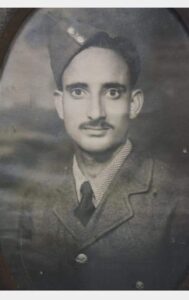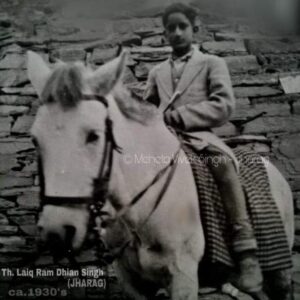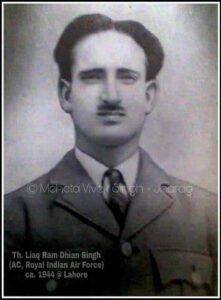 Over two decades after recording a controversial song, folk singer Roshni Sharma has issued a formal public apology for a 2002 track that she now acknowledges was based on false and offensive claims about Master Layak Ram Mehta, a respected teacher, social worker, and former Air Cadet of the Royal Indian Air Force.
Over two decades after recording a controversial song, folk singer Roshni Sharma has issued a formal public apology for a 2002 track that she now acknowledges was based on false and offensive claims about Master Layak Ram Mehta, a respected teacher, social worker, and former Air Cadet of the Royal Indian Air Force.
In a sworn affidavit submitted to Vivek Mehta, the grandson of the late Master Layak Ram, at the office of the Deputy Commissioner, Shimla, Roshni Sharma expressed deep regret and took full moral responsibility for her actions. She admitted that the song, titled “Layakrama”, was based entirely on unverified hearsay and that she had no factual knowledge about the individual it referenced.
“This song was grounded in baseless rumors and malice,” Sharma confessed. “It unfairly damaged the legacy of Master Layak Ram Ji and caused profound distress to his family.” She further emphasized that she has ceased all circulation and performance of the song and has vowed never to share it again on any platform — online or offline.
Roshni also warned others that if anyone shares the audio or video of the song on social media or elsewhere, they will be held legally accountable.
 The family of Master Layak Ram, who passed away due to a brain hemorrhage in 1953, welcomed the apology as a step toward moral accountability, though they noted that no act can completely repair the harm done to the dignity of a man remembered as a patriot, educator, and community figure. His grandson Vivek Mehta emphasized that the late teacher is still honored by many former students and that the defamatory song has caused not only personal grief but potential social discord.
The family of Master Layak Ram, who passed away due to a brain hemorrhage in 1953, welcomed the apology as a step toward moral accountability, though they noted that no act can completely repair the harm done to the dignity of a man remembered as a patriot, educator, and community figure. His grandson Vivek Mehta emphasized that the late teacher is still honored by many former students and that the defamatory song has caused not only personal grief but potential social discord.
Vivek further urged other singers who have performed or uploaded the same song without the family’s consent to immediately remove the content and issue public apologies. Failing to do so, he warned, could result in legal action.
In his statement to the media, he added: “This apology by Roshni Sharma is a responsible step, and we recognize her willingness to correct a historical wrong.”



